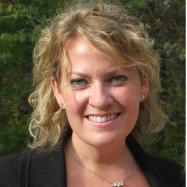Four Steps to Rebuilding Event Confidence During COVID-19Four Steps to Rebuilding Event Confidence During COVID-19
Event rental expert Robin Denny outlines essential steps to get special events rolling in the wake of the coronavirus pandemic.

It’s inevitable that the events will change as we gradually start to emerge from our COVID-19 lockdowns across the country. The emotional toll that the quarantine and life changes have taken on our society will be imprinted on our collective psyches for years to come. However, we live in an interconnected world that still needs our energy and contributions to the economy, along with the joys and reasons to celebrate occasions in our lives.
As event professionals, one of our first challenges in the new world is how to rebuild the confidence of our event attendees so they feel comfortable interacting and attending events. So how does an event professional ensure biosecurity in the new normal?

A temperature station from CORT Party Rental.
1. Attendee health screenings: While temperature checks vary by person, time of day, and general accuracy of the equipment used, setting up a health-screening station before the entrance to the event tells the attendee that the organizer takes individual health and group health seriously. This can be as simple as a station with a thermometer temperature check and a few general health questions before the start of the event.

A sanitizer station from CORT Party Rental.
2. Greater attention to sanitization of the venue and food preparation: Event professionals will need to have a comprehensive cleaning plan that is openly and frequently communicated to clients and attendees. This can include expanded janitorial services, additional sanitizing stations throughout the event space, and ongoing signage and communication to help attendees recognize changes in health that could impact others.
3. Options for social distancing: Again, event professionals will need to have a comprehensive plan to provide space to help people separate, which is the polar opposite of how events have operated in the past. Some options to consider are creating additional seating outdoors or under a temporary shelter, or repurposing other rooms as smaller gathering spaces. Seating plans will need to expand to allow room between guests and, overall, more space will be needed on the event site.
4. Finding new ways to celebrate: While the explosion of Zoom and Houseparty happy hours has consumed much of our social media space, we are human and we thrive on real-life connectivity. The value of collaborative interactions cannot be understated both as part of our collective society and to our individual psyche. Event professionals will have to reassess company picnics, holiday parties, conferences, and leadership meetings to balance in-person interactions while considering sanitization and social distancing parameters. The focus will continue to be on giving people more space around them and providing clear communication on the steps being taken to ensure a healthy, clean environment.
Bonus idea! Bringing back bowing as a form of greeting: In Japan, for example, many individuals live in close quarters with one another and have pretty much perfected the art of limited contact. As a society, they have kept a focus on cleanliness and personal health as a normal part of their lives. The Japanese were also wearing masks when they were sick long before it was cool to do so. So, when thinking about the bow, well, that sounds like a great replacement for the handshake in our new world.
Both event planners and attendees will struggle to find our footing as we determine our new operating parameters in response to COVID-19. However, getting off on the right foot to rebuilding attendee confidence in returning to the workplace must begin with a focus on ways to increase space for social distancing and on venue sanitization.
Together we will pull through this challenge and find a path forward to reconnect on a personal level.
Robin Denny is the director of sales for CORT Party Rental in Seattle. She holds a BA in communication and a master’s degree in business administration. In addition, she is a CERP through the American Rental Association and a CPCE through the National Association of Catering and Events.






